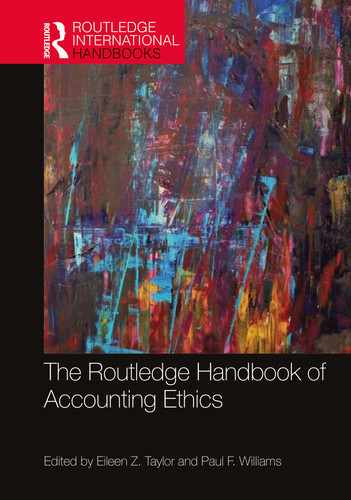The perspective of this book is to present "ethics" as a conversation about how we decide what is good or bad, right or wrong. It is a collection of conversations employed by educators to assist accounting students in developing their understanding of accounting's ethical aspects and to help them develop into critical thinkers who consider the ethical complexities of the function of accounting in human society. Because we are social beings, ethics is a central human concern, since it involves determining the ethicality of human actions and their effect on other individuals, as well as determining the collective societal acceptance or rejection of an action. Thus, the book’s primary goal is to call attention to the intersectionality of accounting and ethics and to encourage students and researchers to consider the ethical implications of accounting decisions. The book contains a diversity of perspectives within which discussions of accountants' and accounting's ethical responsibilities may occur. The contributing authors were deliberately chosen for their diverse perspectives on whence moral guidance for accounting may come. Each chapter stands on its own and represents the thinking of its authors. The book is not a primer on correct behavior for accountants but a place where educators may spur the conversation along.
Table of Contents
- Cover
- Half Title
- Title
- Copyright
- Dedication
- Contents
- List of figures
- List of tables
- List of contributors
- Introduction
- Part I Historical perspectives on business and accounting ethics
- Part II Alternative perspectives for thinking about accounting ethics
- Part III Religious perspectives on accounting ethics
- Part IV Topical perspectives on accounting ethics
- 11 Ethics in auditing
- 12 Promoting a stronger ethical focus in management accounting research and practice
- 13 Development and analysis of three sustainability initiatives
- 14 Governmental accounting ethics: providing accountability to maintain the public trust
- 15 Ethics and accounting information systems
- 16 Blockchain technology in accounting information systems: intended and unintended consequences
- 17 Ethical considerations of corporate tax avoidance: diverging perspectives from different stakeholders
- 18 Personal tax compliance: ethical decision making in the tax context
- Part V Education and accounting ethics
- Part VI Ethical accountants and ethical accounting
- Index
